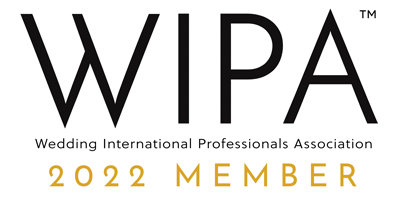Marriage takes two lives and intertwines them in almost every way imaginable, including religion. It is not uncommon for people from different faiths to fall in love and decide to get married. Planning a wedding involves family, faith, and honoring customs. When two people from differing religious faiths decide to get married, it is a delicate balance to determine how to combine those beliefs into a single celebration.
There is no right or wrong way to plan a mixed-faith wedding; however, it does require open communication, genuine self-reflection, and proper planning and guidance.
What is a Mixed-Faith Wedding?
When two people from different religious backgrounds decide to marry, they often blend their varying faiths’ different customs and traditions into one interfaith or mixed-faith wedding ceremony. While this can pose some complications, it is not impossible. A mixed-faith ceremony can be a wonderful expression of love and unity.
Options for Officiants
Some officiants specialize in interfaith wedding ceremonies. An interfaith officiant is educated in multiple religions and prepared to help couples celebrate their marriage however they choose. Ordained clergy from many religions and faith denominations can also preside over interfaith ceremonies. For example, rabbis, pastors, and priests are all considered clergy members.
Interfaith weddings may include two officiants representing the different religious faiths of the couple. If you choose to have two officiants, it is important to coordinate communication between them during the planning process.
Pre-Marital Considerations
When planning an interfaith wedding, discussing the traditions and aspects of your faith that you want to include in the ceremony and your marital life is essential. Pre-wedding is the perfect time to communicate with each other, your wedding officiant, and your wedding planner. Your wedding officiant or officiants are accessible for guidance before the wedding ceremony. They can help you determine what to include in the ceremony and help you through discussions about interfaith life after the ceremony.
A broader understanding of each faith will help you decide which traditions to include in your ceremony. A mix of traditions is a beautiful way to celebrate the blending of your lives.
Honor Both Family’s Faith, Culture, and Traditions
Honoring the cultures and traditions of each family throughout the ceremony is a significant part of a mixed-faith wedding, if not the most important aspect of planning one. There are many ways to do this. For example, combining Jewish and Catholic backgrounds with tangible traditions such as a chuppah and unity candle are both symbols of the couple coming together. Including an explanation of each faith tradition in the wedding program is a thoughtful way to help guests understand the ceremony as it unfolds.
An Experienced Wedding Planner
When planning a mixed-faith wedding ceremony hiring a wedding planner can help you navigate through some complex decisions, so the traditions most important to you and your families are part of your wedding day.
If you need a Boston wedding planner, contact us at Jodi Raphael Events. We’d love to help you plan a meaningful mixed-faith ceremony.
Mixed-faith wedding planning is a specialty of ours, and we’ve had many beautiful wedding ceremonies thanks to our sensitive and talented team.
Call us at (617)467-4524 to learn more!
















